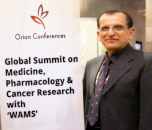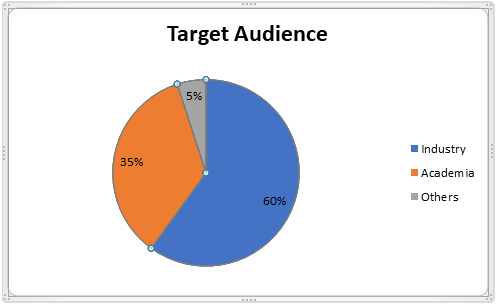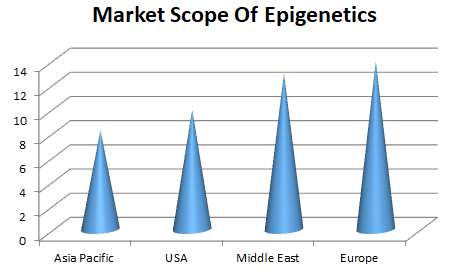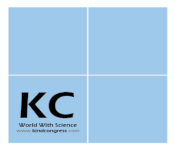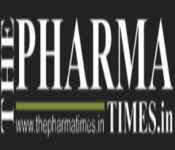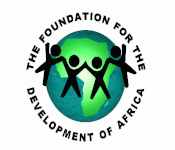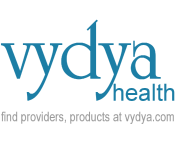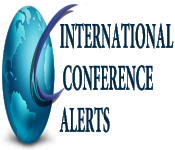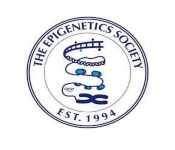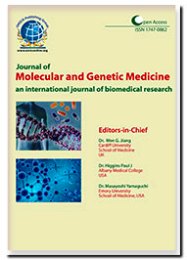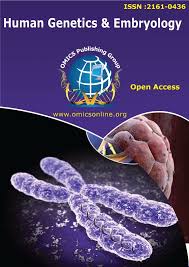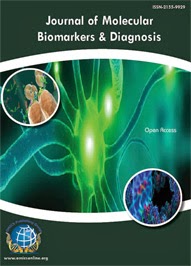Theme: Development of Novel Diagnostic and Therapeutic Approaches for Human Diseases
Human Diseases 2019
ME Conferences Graciously invites all the members and attendees from all over the world to attend “2nd International Conference on Epigenetics and Human Diseases" during November 11-12, 2019 at Amsterdam, Netherlands with the Theme: Development of Novel Diagnostic and Therapeutic Approaches for Human Diseases which embraces prompt Keynote Presentations, Oral talks, Poster Presentations, Workshop, Symposia and Demonstrations.
Epigenetics is a relatively new field in the world of genetics and a brand new look at the RNA field of Genetics and Molecular Biology which studies the structure and function of genes at a molecular level. The consider of chromosomes and quality expression of a life form can provide knowledge into heredity, hereditary mutation, and changes. This is valuable to study the developmental biology and treating the hereditary diseases which is all about simplifying the complex phenomenon behind Epigenetic mechanism & protein expression. The conference has a focus on systems biology approaches for the understanding, diagnosis, and therapy of human diseases and Cancers. The capacity to get a large picture of sickness & how it gives a clear understanding of the principal human genome which is changed over into the valuable quality calming classification, assurance and individualized treatment.
Why to Attend?
Human Diseases Conference is a novel discourse to join together in general recognized scholastics in the field of hereditary qualities and atomic science Analysts, Open prosperity specialists, Researchers, Scholastic analysts, Industry masters, researchers to exchange almost condition of the Investigate and Advancement of diseases. Epigenetics is a major mechanism in human health and disease (cancer, neurological and immunological disorders) have uncovered altered epigenomes arising from mutations, altered expression and/or copy number alterations of numerous epigenetic factors (histones, DNA and chromatin modifying enzymes, reader proteins, chromatin modulators and noncoding RNAs)
Point of this gathering is to fortify new views for treatment that will be valuable over the range of Epigenetics and Various diseases in human. Importantly, mutations in core-regulators of the Diseases are causative in many human diseases or congenital disorders. It is also a great opportunity to intermingle with members across the world and form molecular level with related associations and societies.
Target Audience:
Our organization takes immense pleasure in welcoming,
-
Scientists
-
Epigenetics, Genetics and Oncology Researchers
-
Human Genetics / Epigenetics / Cancer Associations and Society
-
Molecular Biologists
-
Business delegates
-
Directors, Board Members, Presidents, Vice Presidents
-
Cell Biologists
-
CEO's and R&D Heads from Industries
-
Business Entrepreneurs and Industrialists
-
Human Genetics Researchers
-
Pharmacists
-
Drug Manufacturing Companies and Industries
-
Laboratory Technicians and Diagnostic Company
-
Nurses
Benefits:
-
All accepted abstracts will be published in the supporting journals of the conference and Conference Book Proceeding.
-
Each abstract will receive a DOI number provided by Crossref.
-
Opportunity to conduct Workshop with your team members.
-
Opportunity to chair a session.
-
Certification by the organizing committee.
-
Individual keynote Page will be created to get more visibility for your scientific research.
-
Huge Benefits on Group Registration and much more.
Track 01: Cancer Epigenetics
Cancer is caused by failure of checks and balances that control cell numbers in response to the needs of the whole organism. Inappropriate function of genes that promote or inhibit cell growth or survival can be caused by errors introduced into the genetic code itself or by faulty epigenetic mechanisms deciding which genes can and cannot be expressed. Two of the main methods are DNA methylation and histone modification. Methylation involves tacking a methyl group onto DNA. Epigenetic gene regulation collaborates with genetic alterations in cancer development. This is evident from every aspect of tumor biology including cell growth and differentiation, cell cycle control, DNA repair, angiogenesis, migration, and evasion of host immunosurveillance.
- Cervical Cancer
- Rhabdoid Tumors
- Prostate Cancer
- Brest Cancer
- Chromatin dysregulation
Track 02: Clinical Epigenetics
The study of epigenetic principles and mechanisms as applied to human development, disease, diagnosis and treatment. Clinical epigenetics is being incorporated into patient management in oncology, as well as being explored for clinical applicability for other human pathologies such as neurological and infectious diseases and immune system disorders.Clinical epigenetics is the application of molecular biology techniques detecting alterations in DNA methylation or histone modification to diagnose or study disorders characterized by heritable defects in the expression of a gene or genome. Applications include Rett syndrome, disorders of imprinting, uniparental inheritance of chromosomes and chromosome segments, and somatic epigenetic anomalies in cancers.
- Cancer
- Aging
- Neurological disease
- Immune disorders
- Viral infections
- Rett Syndrome
Track 03: Epigenetics Biomarkers
Epigenetic biomarkers defined as the modifications of the genome with preserved DNA sequence. DNA methylation measurement in cell, it may also be useful in improving early detection by measuring tumor DNA released into the blood. Molecular biomarkers are used routinely in a clinical setting to assess the medical state of patients and in several other medical contexts, including clinical trial endpoints, pharmaceutical development, and basic science research. The clinical validation of epigenetic biomarkers to allow the accurate prediction of the outcome of cancer patients and their potential chemo sensitivity to current pharmacological treatments. A clinical example of a biomarker is plasma glucose.
- Testis Cancers
- Urological Cancers
- Genetic Biomarkers
- Biomarkers for lung cancer
- Breast Cancer
- Ovarian Cancer
- Malignant Rhabdoid Tumors
Track 04: Epigenetics Therapy
Epigenetic therapy is a relatively new treatment that is related to gene therapy, as the treatment looks at changes in the DNA. However, unlike gene therapy, which works to alter the DNA sequence, epigenetic therapy focuses on changes in DNA expression. Epigenetic drugs for cancer treatment have opened the door for the development of epigenetic drugs for other disorders including neurodegenerative diseases. The understanding of the contribution of epigenetic changes to rare diseases provides useful principles for other common and complex disorders such as cancer, cardiovascular, type 2 diabetes, obesity, and neurological diseases and will hopefully provide us with better molecular tools for an improved diagnosis, prognosis, and therapy for the patients in the future.
- p53 Gene Therapy
- Immunotherapy
- Histone Deacetylase Inhibitors
- DNA Methyltransferase Inhibitors
Track 05: Depression and Mental illness
Sometimes physical problems can cause depression. But other times, symptoms of depression are part of a more complex psychiatric problem. An individual with major depression, or major depressive disorder, feels a profound and constant sense of hopelessness and despair. Major depression is marked by a combination of symptoms that interfere with the person's ability to work, study, sleep, eat, and enjoy once pleasurable activities. Major depression may occur only once but more commonly occurs several times in a lifetime. Exercise is especially helpful for the depressed mind. It enables you to better handle stress, and the endorphins released during exercise give you a mental boost. While science has yet to find a cure for mental disorders such as depression, it is entirely possible to live a happy and fulfilling life in spite of it.
- Dysthymia and Chronic Depression
- Seasonal affective Disorder
- Psychotic Depression
- Bipolar Depression
Track 06: Autoimmune Diseases
In an autoimmune disease, the immune system mistakes part of your body like your joints or skin as foreign. It releases proteins called autoantibodies that attack healthy cells. Some autoimmune diseases target only one organ. Type 1 diabetes damages the pancreas. Other diseases, like lupus, affect the whole body. Immune deficiency diseases decrease the body's ability to fight invaders, causing vulnerability to infections. An autoimmune disorder may affect one or more organ or tissue types include: blood vessels, connective tissues, endocrine glands such as the thyroid or pancreas Muscles, joints, red blood cells and Skin. About 24 million 7% people in the United States are affected by an autoimmune disease. Women are more commonly affected than men.
- Rheumatoid Arthritis
- Inflammatory Bowel Disease
- Type 1 Diabetes Mellitus
- Graves' disease
- Hashimoto's thyroiditis
- Systemic lupus Erythematosus
- Allergies and Asthma
- Scleroderma
Track 07: Gynecological and Obstetrical Diseases
Woman's reproductive organs are always showing signs of change through the ordinary procedures of sexual movement, pregnancy and maturing, and at times illness and damage. Specialists are utilized propelled systems including laparoscopic medical procedure and gynecologic and obstetric ultrasound. Symptoms may result from mild contaminations that are anything but difficult to treat. Be that as it may, on the off chance that they are not treated appropriately, they can prompt progressively genuine conditions, including infertility or kidney harm. Vaginal symptoms may likewise be an indication of increasingly difficult issues, from sexually transmitted diseases (STDs) to tumors of the reproductive tract.
Gynecological symptoms may take after other medical conditions or urological issues. Continuously counsel your doctor for a determination
- Absence of periods (amenorrhea)
- Infrequent periods (oligomenorrhea)
- Heavy periods (menorrhagia)
- Family planning
- Prenatal counseling
- Infertility
- Miscarriage
Track 08: Liver Diseases
Liver disease can be inherited (genetic) or caused by a variety of factors that damage the liver, such as viruses and alcohol use. Obesity is also associated with liver damage. Autoimmune hepatitis inflames your liver. It can lead to other disorders and even liver failure. It strikes girls and women more often than boys or men. Primary biliary cholangitis attacks tiny tubes in your liver called bile ducts. They carry bile, a chemical that helps you digest food. When the ducts are injured, the bile backs up inside your liver and scars it. Women come down with this more often than men.
- Hepatitis B
- Hepatitis C
- Cirrhosis
- Liver Cancer
- Hemochromatosis
- Malnutrition
Track 09: Kidney Diseases
Kidney diseases can influence your body's capacity to clean your blood, sift additional water through of your blood, and help control you’re circulatory. Constant kidney ailment, additionally called chronic kidney diseases depicts the slow loss of kidney function.
Kidney illness influences roughly 26 million American grown-ups. It happens when your kidneys become harmed and can't play out their capacity. Harm might be brought about by diabetes, hypertension, and different other ceaseless (long haul) conditions. Kidney illness can prompt other medical issues, including feeble bones, nerve harm, and lack of healthy sustenance.
- Type 1 or type 2 diabetes
- Interstitial nephritis
- Polycystic kidney disease
Track 10: Chronic Diseases
Chronic Diseases will, in general become progressively regular with age. The main unending infections in created nations incorporate joint inflammation, cardiovascular diseases, for example, heart assaults and stroke, malignant growth, for example, bosom and colon disease, diabetes, epilepsy and seizures, heftiness, and oral medical issues.
As per the Centres for Disease Control, Chronic Diseases is the main source of death and disability in the United States, representing 70% of all things considered. Additionally, constant conditions, for example, back torment and misery is frequently the principle drivers of diminished profitability and expanded human services costs. Information from the World Health Organization demonstrate that chronic disease is the major cause of premature death around the world, even in places where infectious diseases are rampant.
- Alzheimer’s Disease
- Cancer
- Cardiovascular Diseases
- Chronic Back Pain
- Depression
- Diabetes
- Epilepsy
- Obesity
Track 11: Neurodegenerative Diseases
Neurodegenerative diseases are incurable and debilitating conditions that result in progressive degeneration or death of nerve cells. This causes issues with development (called ataxias), or mental working (called dementias). It is an umbrella term for a scope of conditions which basically influence the neurons in the human mind. The danger of being influenced by neurodegenerative ailment increments drastically with age. Populace wide wellbeing enhancements have expanded life expectancy which, alongside a bigger age of maturing Americans, implies more individuals might be influenced by neurodegenerative infections in coming decades. Sandhoff disease is a rare inherited disorder that progressively destroys nerve cells (neurons) in the brain and spinal cord. Newborn children with this issue regularly seem typical until the age of 3 to a half year, when their improvement moderates and muscles utilized for development debilitate. Influenced newborn children lose engine aptitudes, for example, turning over, sitting, and crawling.
- Parkinson's Disease
- Sandhoff Disease
- Alzheimer’s Disease
- Huntington’s Disease
- Motor neurone Diseases (MND)
- Spinocerebellar Ataxia (SCA)
- Spinal muscular Atrophy (SMA)
Track 12: Plant Epigenetics
Epigenetic component makes a difference to ensure the plant cells from the action of parasitic groupings such as transposable components, this defense can complicate the hereditary designing prepare through transcriptional quality silencing. The frequently occurring changes in plants which incorporates heritable or metastable changes causing varieties in epigenetic status. Hence, heritable epigenetic varieties as well as hereditary variety have the potential to drive common varieties in plants. Climate alter is without a doubt one of the most prominent dangers confronting both plants and creatures alike. With rising temperatures and irregular climate designs, dry spells have gotten to be a distant as well typical event worldwide.
- Heritability of Epigenetic Marks
- DNA Methylation in Plants
- Crop epigenetics: Hybridization and Heterosis
- Natural variation and Ecological Epigenetics
- Stress-induced Epigenetics Changes
- Epigenetics Regulation of host-pathogen interactions
Track 13: Animal Epigenetics
Epigenetic mechanisms can also be caused by environmental factors, such as diet, stress, exposure to toxic products, etc., and not merely the chance of genetic mutations. Epigenetic parameters orchestrating transgenerational effects, as well as hereditary disorders and the often-overlooked areas of livestock immunity. Epigenetics has the potential to be very useful in animal breeding, as it may provide information relating to the heritability of complex traits and diseases.
- Animal Models in Epigenetics Research
- Animal Epigenetics Welfare
- Animal Cloning Epigenetics
- Genome Instability
- Non-coding RNAs
Track 14: Infectious Diseases
Infectious diseases are disorders caused by organisms such as bacteria, viruses, fungi or parasites. Many organisms live in and on our bodies. They're normally harmless or even helpful, but under certain conditions, some organisms may cause disease. Many infectious diseases, such as measles and chickenpox, can be prevented by vaccines. Frequent and thorough hand-washing also helps protect you from most infectious diseases. Infectious diseases can be spread from one person to another, for example through contact with bodily fluids, by aerosols (through coughing and sneezing), or via a vector, for example a mosquito.
- Fever
- Diarrhea
- Fatigue
- Muscle Aches
- Coughing
Track 15: Rare Diseases
Rare diseases became known as orphan diseases because drug companies were not interested in adopting them to develop treatments. The Orphan Drug Act created financial incentives to encourage companies to develop new drugs for rare diseases. This estimate has been used by the rare disease community for several decades to highlight that while individual diseases may be rare, the total number of people with a rare disease is large. Over 6000 rare diseases are characterised by a broad diversity of disorders and symptoms that vary not only from disease to disease but also from patient to patient suffering from the same disease.
Relatively common symptoms can hide underlying rare diseases leading to misdiagnosis and delaying treatment. Quintessentially disabling, the patient’s quality of life is affected by the lack or loss of autonomy due to the chronic, progressive, degenerative, and frequently life-threatening aspects of the disease.
- West Syndrome
- Angelman Syndrome
- Gaucher's Disease
- Fabry Disease
- Acrogeria
- Adiposis dolorosa
- Achondroplasia
- Aicardi Syndrome
Track 16: Cardiovascular Diseases
Cardiovascular disease (CVD) is a general term for conditions affecting the heart or blood vessels. It can also be associated with damage to arteries in organs such as the brain, heart, kidneys and eyes. Heart attacks and strokes are usually acute events and are mainly caused by a blockage that prevents blood from flowing to the heart or brain. The most common reason for this is a build-up of fatty deposits on the inner walls of the blood vessels that supply the heart or brain. It beats in a steady, even rhythm, about 60 to 100 times each minute. That's about 100,000 times each day. Sometimes, your heart gets out of rhythm. An irregular or abnormal heartbeat is called an arrhythmia.
- Coronary Heart Disease
- Cerebrovascular Disease
- Peripheral Arterial Disease
- Rheumatic Heart Disease
- Congenital Heart Disease
Track 17: Blood Diseases
Blood issue can likewise influence the fluid bit of blood, called plasma. Blood issue influence at least one pieces of the blood and keep your blood from carrying out its responsibility. They can be intense or endless. Many blood issue are acquired. Different causes incorporate different infections, symptoms of medications, and an absence of specific supplements in your eating regimen. Basic blood issue incorporate sickliness and draining issue, for example, hemophilia. When something isn't right with your blood, it can influence your complete wellbeing. That is the reason it is significant for you to think about a portion of the regular blood issue that may influence you.
- Iron-deficiency Anemia
- Anemia of Chronic Disease
- Aplastic Anemia
- Autoimmune Hemolytic Anemia
Track 18: Chromatin and Chromosome Dynamics
Chromatin is a complex of DNA, RNA, and protein which packages very long DNA molecules into a more compact, denser shape, preventing the strands from becoming tangled, preventing DNA damage, and regulating gene expression and DNA replication. Chromosome mechanisms during replication and in response to DNA damage, ensuring the faithful inheritance of genetic and epigenetic information and maintaining genome stability. Epigenetic modification of the structural proteins in chromatin via methylation and acetylation also alters local chromatin structure and thus gene expression. The structure of chromatin networks is currently poorly understood and hence is an active area of research in molecular biology.
- Sexual Chromosomes
- Autosomal Chromosomes
- Homo and Hetero Chromosome
- Euchromatin
- Nuclear Architecture
- mRNA Methylation
- miRNAs
- RNA Editing
Track 19: Pharmacogenomics and Personalized Medicine
The practices of personalized medicine are to maximize the therapeutic effects of likelihood and to minimize the risk of drug toxicity for an individual patient. Pharmacogenomics is the study of the genome in drug response. The genetic disorder occurrence is quite rare in population; some might be hereditary while the others are caused by mutations. Disease-specific epigenetic signatures such as DNA methylation, hydroxymethylation, and non-coding RNAs are now being utilized clinically for prognostics and diagnostics, while an expanding collection of genetically aberrant, abnormally expressed or chromatin-interacting epigenetic enzymes are positioned as promising targets for therapeutic intervention. Scientists also recognize that even as the knowledge base continues to expand, the clinical translation of that knowledge still requires empirical evidence, generated for a particular disease and drug combination, before treatment can be customized to a patient's genotype.
- Genomic DNA and mRNA
- Serotonin transporter gene
Track 20: Molecular Diagnostics of Human Diseases
A few advances in Machine has prompted the examination of high-dimensional and multimodal biomedical information that have guaranteed improvement in the discovery, finding, and remedial checking of early infection movement. Diagnostic tests and plasma analyte investigation don't decide atomic mitochondria defects with discoveries in clinical epigenetics that distinguish the quality Sirtuin 1 to be defective and to be associated with lethal invulnerable responses important to mitophagy. Proteome blood investigation is currently a significant demonstrative system in drug with existing proteomic biomarkers correlated with early illness movement in wellbeing and diseases. Sirtuin 1 investigation in plasma and body liquids is fundamental to decide the significance of symptomatic clinical biochemistry tests and will permit the early conclusion of illness movement that includes cardiovascular diseases, non-alcoholic fatty liver infection, metabolic diseases, and neurodegenerative diseases. Doctors have raised worries for the predominance of under determination of different endless sicknesses related with the increasing speed of modified cell death in worldwide diabetes and organ diseases.
Related Associations or Societies:
USA:
American Society of Human Genetics (ASHG), National Society of Genetic Counsellors (NSGC), American College of Medical Genetics (ACMG), American Board of Genetic Counselling (ABGC), American Board of Medical Genetics (ABMG), Nation Coalition for Health Education in Genetics (NCHPEG), International Society of Nurses in Genetics (ISONG), Council of Regional Networks (CORN) discontinued, Canadian College of Medical Geneticists, College Canadian de Généticiens Médicaux (CCMG), Canadian Collaborative Group for Cancer Genetics (CCGCG), European Genetics Foundation (EGF), Clinical Molecular Genetics Society (CMGS) United Kingdom. The American Public Health Association, National Society of Genetic Counselors, International Mammalian Genome Society, British Society of Genetic Medicine, International Federation of Human Genetics Societies, Genetics society of America
Europe:
European Society Of Human Genetics, American Society of Human Genetics ,German Genetics Society, International Society of Genetic Genealogy, The American Society of Haematology, ASGCT American Society of Gene & Cell Therapy, International Society of Genetic Genealogy, Austrian Society for Human Genetics, Belgian Society for Human Genetics, Czech Society of Medical Genetics, Danish Society of Medical Genetics
Asia-Pacific and Middle East:
East Asian Union of Human Genetics Societies, Association of Chinese Geneticists in America, Hong Kong Society of Medical Genetics, Japan Society of Human Genetics, Genetics Society of Korea (GSK), Korean Society of Human Genetics, Genetics Society of Vietnam, Turkish Association of Medical Genetics, Japan Society of Gene Therapy, Human Genetics Society of Australasia (HGSA), Australian Society of Genetic Counsellors ,Genetic Society of Australia (GSA),American Human Geneticists of Indian Subcontinent Origin, Indian Society of Human Genetics, National Laboratory for the Genetics of Israeli Populations, Israeli Society of Medical Geneticists, Middle East Genetics Association.
Related Conferences:
Epigenetics Conferences | Genetics Congress | Biotechnology Meetings |
International Epigenetics and Epitranscriptomics Conference, November 26-27, 2018 Helsinki, Finland | 11th Regenerative Medicine Congress July 19-20, 2018, Dubai, UAE | Chromatin, Epigenetics & Transcription, Suzhou, China, April 16-20, 2018 | 5th World Congress on Epigenetics and Chromosome, October 25-26, 2018, Istanbul, Turkey | 4th International Congress on Epigenetics & Chromatin September 03-05, 2018 London, UK | 11th World Congress and Expo on Cell & Stem Cell Research March 18-19, 2019 Chicago, Illinois, USA | 6th Global Summit on Plant Science, October 29-30, 2018 Valencia, Spain | International Conference on Obesity and Diet Imbalance, November 29-30, 2018 Bali, Indonesia | 8th World Conference on Women’s Health and Breast Cancer, December 17-18, 2018, Abu Dhabi, UAE | 32nd Euro Congress on Cancer Science & Therapy, March 07-08, 2019, Barcelona, Spain | 2nd World Conference on Medical Oncology & Haematology, Mar 27-28, 2019, Hong Kong | 2nd Global Meeting on Clinical Oncology and Radiology, Mar 27-28, 2019, Hong Kong | Epigenetics in the nervous system: development and disease, 1 - 3 October, 2018, Stockholm, Sweden | 3rd Molecular Diagnostics Conference April 19-20, 2018, Dubai, UAE | 2nd Cell Metabolism Summit September 19-20, 2018, Philadelphia, USA | 3rd Stem Cell Conference, July 19-20, 2018, Dubai, UAE | Epigenetics & Chromatin - New York, US - 11–15 Sept 2018 Conference | ICECT 2018 : 20th International Conference on Epigenetics, Chromatin and Transcription - Osaka, Japan - 13– 14 Sept 2018 Conference | The 5th Canadian Conference on Epigenetics - Quebec, Canada - 30–03 Oct 2018 Conference |
Scope: The Scope of the conference is to gather all the Physicians, Researchers, Business Delegates and Scientists to approach and deliver all the attendees about the latest scientific advancements on the particular sphere of influence. Human Diseases 2019 covers all the comprehensive sessions which are related to the hypertension, obesity, diabetes, cardiovascular disorders, respiratory disorders, hormonal disorders, neurological disorders, food disorders, blood disorders, bone disorder, depression and cancer. The International Conference on Epigenetics and Human Diseases provides a common platform to professors, researchers, enterprisers and students to exchange new ideas and experiences in person, to establish business or research relations and to find global partners for future associations.
Importance: Conference on Human Diseases 2019 is a much-celebrated conference which basically deals with the latest research and developments in the sphere of genetics and various diseases .This Conference will give a culminate stage to all the worldwide blend of driving Investigate researchers, and researchers accomplished significance in their field of think about, investigate academicians from the colleges and investigate teach, mechanical inquire about experts and trade partners along with Ph.D.
TARGET AUDIENCE:
The conference discusses the latest research outcomes and technological advancements in the field of genetics and molecular biology.
- Scientists
- Epigenetics, Genetics and Oncology Researchers
- Human Genetics/ Epigenetics/Cancer Associations and Society
- Molecular Biologists
- Business delegates
- Directors, Board Members, Presidents, Vice Presidents
- Cell Biologists
- CEO's and R&D Heads from Industries
- Business Entrepreneurs and Industrialists
- Human Genetics Researchers
- Pharmacists
- Drug Manufacturing Companies and Industries
- Laboratory Technicians and Diagnostic Companies
Today’s Market Study of Epigenetics research in USA | Europe | Middle East | Asia Pacific
Asia Pacific: The Europe genetic testing market is valued at USD 1.20 billion in 2016, and is projected to reach USD 1.6 billion by 2021, growing with a compound annual growth rate (CAGR) of 8.2% during the forecast period, 2016-2020.
USA: The USA Genetics market is poised to reach USD 19.99 Billion by 2020, growing at a CAGR of 9.9% during the forecast period from 2015 to 2020.
Europe: The global Epigenetic value on the market was estimated $419.4 million in 2013 and is expected to grow at a CAGR of 13.9% in the next five years.
Middle East: The global gene expression analysis market is projected to reach USD 5.30 Billion by 2020 from USD 3.39 Billion in 2015, at a CAGR of 9.3% from 2015 to 2020. The primary growth appliance in this region is China, which is expected to record a growth rate of 12.5% in the forecast period.
The falling sequencing expenses and time increase in research activities to identify and progress inhibitors/drugs for various diseases, funding for epigenetics research, and rising the prevention of cancer are the major factors driving the progression of this market.
The global market for Epigenetic Testing is forecast to reach US$2.4 billion by 2019. Increasing knowledge about the potential benefits in Epigenetic testing is one of the prime reasons for the growth of the genetic analysis. Developments in the genetic modifications space, aging population and a consequent rise in the number of genetic diseases, and increasing incidence of cancer cases are the other factors impelling growth in the genetic testing market.
Global Epigenetics Market, by Research Areas
Developmental Biology
Drug Discovery
Oncology
Other Epigenetics Research Areas
The glance at the Market
Some key players of the epigenetics market incorporate, Abcam, Illumina, Diagenode, Thermo Fisher Scientific, Merck, Zymo research, Qiagen, CellCentric Ltd, Chroma Therapeutics Ltd, Eisai Co. Ltd, Novartis International AG., Syndax Pharmaceuticals, Inc., Valirx Plc and Sigma-Aldrich Corporation, Oncolys Biopharma Inc.
Extensive R&D activities went for the advancement of novel medications and the nearness of solid item pipeline is relied upon to further help market development over the gauge time frame. Grand View Research has fragmented the global epigenetics market on the basis of product, technology, application and region:
Epigenetics Product Outlook (Revenue, USD Million, 2015 – 2022)
Reagents
Kits
Instruments
Enzymes
Epigenetics Technology Outlook (Revenue, USD Million, 2015 – 2022)
DNA Methylation
Histone Methylation
Histone Acetylation
Large noncoding RNA
MicroRNA Modification
Chromatin structures
Epigenetics Application Outlook (Revenue, USD Million, 2015 – 2022)
Oncology
Solid Tumors
Liquid Tumors
Non-Oncology
Inflammatory Diseases
Metabolic Diseases
Infectious Diseases
Cardiovascular Diseases
Epigenetics Market Regional Outlook (Revenue, USD Million, 2015 – 2022)
North America
U.S.
Canada
Europe
UK
Germany
Asia Pacific
Japan
China
India
Latin America
Brazil
Mexico
Middle East and Africa (MEA)
South Africa
Market value of Diseases in Netherlands
Cancer now accounts for one out of three deaths for men and over a quarter in women
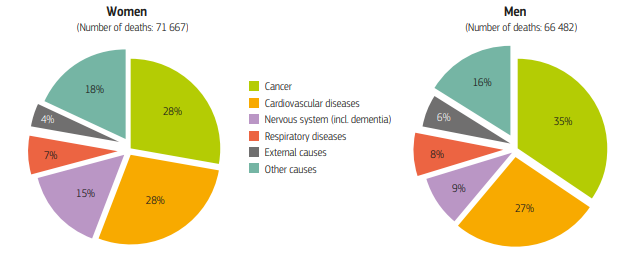
Leading Hospitals around the Globe:
- 302 Military Hospital of China
- Academy of Military Medical Sciences
- ACIBADEM
- Affiliated to Suzhou University Children's Hospital
- Anhui Provincial Hospital
- Ann & Robert H. Lurie Children’s Hospital of Chicago
- Aravind Eye Care System
- Armed Police General Hospital
- Asan Medical Center Seoul
- Asklepios Klinikum Bad Abbach
- Assistance Publique Hôpitaux de Paris
- Baptist Medical Center
- Baskent Universitesi Adana Hastanesi
- Baylor University Medical Center
- Beijing Hospital
- Beijing Maternity Hospital
- Beijing Tong Ren Hospital Capital Medical University
- Beppu National Rehabilitation Center for Persons with Severe Disabilities
- Bma Medical College and Vajira Hospital
- Buddhist Tzu Chi General Hospital
- Bumrungrad Internacional Hospital
- Cancer Institute & Hospital Chinese Academy of Medical Sciences
- Cantonal Hospital St.Gallen
- Carolinas Medical Center
- Case Medical Center
- Cathay General Hospital
- Cedars-Sinai Medical Center
- Chang Gung Memorial Hospital
- Changchun City Mental Hospital (Sixth Hospital of Changchun City)
- Changhua Christian Hospital Changhua City
- Cheng Ching Hospital
- Chi Mei Medical Center
- Chia-Yi Christian Hospital
- Children’s Medical Center of Dallas
- Ching Chyuan Hospital
- Chung Ho Memorial Hospital Kaohsiung Medical University
- Clalit Health Services
- Cleveland Clinic
- Department of Otolaryngology Otolaryngology Ludwig Maximilians University of Munich
- Dokkyo Medical University Hospital
- E Da Hospital / I Shou University
- El Camino Hospital
- Erasmus Medical Center Universitait Medical Center Rotterdam
- Ewha Women Medical Medical Center
- First Affiliated Hospital of Guangxi Medical University
- First Affiliated Hospital of Medical College Qingdao University
- Fort Suranaree Hospital
- Fudan University Cancer Hospital Shanghai
- Gachon University Gil Medical Center
- General Hospital of The Air Force P.L.A.
- Guangdong Provincial Disease Prevention and Control Centre
- Guangdong Provincial People's Hospital
- Guangdong Provincial TCM Hospital
- Guangzhou City Twelfth People's Hospital
- Guangzhou Soogood Medical Cosmetology Hospital
- Guy's and St Thomas' Hospital NHS
- Hackensack University Medical Center
- Hadassah Medical Organization
- Hallym University Medical Center
- Haydarpasa Gata Arastirma Hastanesi
- HELIOS clinics group
- Heping Hospital of Changzhi Medical College
- Hirslanden Privatklinikgruppe
- Hospital Authority
- Hospital of Johannes Gutenberg University Mainz
- Hospital of the city Dornbirn
- Houston Methodist Hospital
- Huashan Hospital Fudan
- Inselspital Universitatsspital Bern
- Institute of Cancer Research Royal Cancer Hospital
- Institute of Medical Science University of Tokyo
- Institute of Psychiatry and Neurology
- Japan Hospital Association
- Jiangsu Provincial People's Hospital
- Jilin University Bethune Hospital - First Hospital of Jilin University
- Jinyun County Dou's Traumatology Hospital
- Johanniter Hospital
- Johns Hopkins Hospital
Leading Hospitals in Amsterdam:
- Sint Lucas Andreas Ziekenhuis
- OLVG Ziekenhuis
- OLVG locatie Oost
- Antoni van Leeuwenhoek
- OLVG
- Vumc
- Bovenij Ziekenhuis
- Slotervaartziekenhuis
- Vermaat Retail
Leading Hospitals in Netherlands:
- Ijsselmonde Huisartsenpraktijk
- Vlietland
- Ijssel Land Ziekenhuis
- Oogziekenhuis
- Maasstad Ziekenhuis
- Erasmus MC
- Ikazia Ziekenhuis
- VU University Medical Center
- Academic Medical Center Amsterdam
- University Medical Center Groningen
- University Medical Center Utrecht
- Leiden University Medical Center
- Radboud University Nijmegen Medical Centre
- Maastricht UMC+ Maastricht Universitair Medisch Centrum (MUMC+)
Conference Highlights
- Clinical Epigenetics
- Epigenetics Biomarkers
- Plant Epigenetics
- Animal Epigenetics
- Chromatin and chromosome dynamics
- Pharmacogenomics and Personalized Medicine
- Epigenetics Therapy
- Cancer Epigenetics
- Depression and Mental illness
- Autoimmune Diseases
- Liver Diseases
- Kidney Diseases
- Chronic Diseases
- Neurodegenerative Diseases
- Infectious Diseases
- Rare Diseases
- Blood Diseases
- Cardiovascular Diseases
- Molecular Diagnostics of Human Diseases
- Gynecological and Obstetrical Diseases
To share your views and research, please click here to register for the Conference.
To Collaborate Scientific Professionals around the World
| Conference Date | November 11-12, 2019 | ||
| Sponsors & Exhibitors |
|
||
| Speaker Opportunity Closed | |||
| Poster Opportunity Closed | Click Here to View | ||
Useful Links
Special Issues
All accepted abstracts will be published in respective Our International Journals.
- Journal of Genetic Syndromes & Gene Therapy
- Journal of Stem Cell Research & Therapy
- Journal of Cell Science & Therapy
Abstracts will be provided with Digital Object Identifier by












